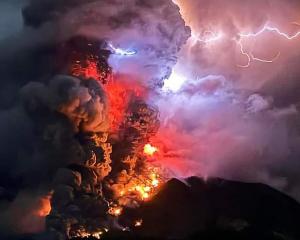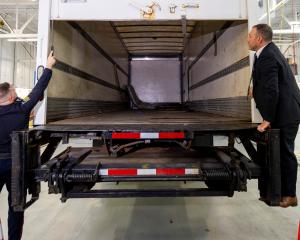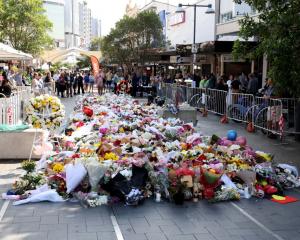North Korea could be heading towards a crisis similar to the 1990s when a million people are thought to have died after a series of natural disasters brought widespread famine, said an aid worker, just back from a tour of the impoverished state.
North Korea has suffered heavy floods this year, including from a typhoon earlier this week and another storm heading in its way, and has little capacity to deal with any more damage, said Kim Hartzner, managing director of Mission East, a Danish aid group which focuses on providing food aid to children.
"The scale and the magnitude of the disaster has been mind-blowing," he told Reuters, referring to flooding in late June and the end of July that killed at least 169, leaving some 400 people missing and 212,200 homeless.
"They've been through five or six consecutive disasters. It is a long-term problem and the supplies are likely to be very low," he said, adding there was a lack of even basic materials for rebuilding homes, such as concrete and iron bars.
"The damage to the arable land will not have an effect tomorrow or the day after; it will have an effect in two or three months. They can eat the maize they have already harvested," Hartzner added.
"But I think this will affect a sizable proportion of the maize. It is extremely serious if the maize and rice crops are damaged," he said, after returning from a six-day visit where he visited several areas hard-hit by the recent floods.
It was Hartzner's fourth trip to the country since last year when Mission East first gained access to North Korea.
A famine in the 1990s killed an estimated million people and North Korea has continued to endure chronic food shortages, which many experts say reflect systemic failings in the reclusive country's heavily centralised economic system, which has sapped farmers' productivity.
Since then, North Korea's agricultural sector has become increasingly vulnerable to floods and drought as a result of widespread deforestation.
While a United Nations official said earlier this month that the country was a long way from the famine levels seen in the 1990s, Hartzner said he was more worried.
"I think the chances are increasing that we're getting to a situation which could have similarities to the crisis in the 1990s. Definitely people are dying. How many is the big question which I simply cannot answer," he said.
Hartzner described conditions in three orphanages he visited in South Hwanghae province as awful.
"There the conditions are beyond comprehension; 70 percent of the children are suffering from acute malnutrition, either severely or moderately," he said.
U.N. and some other agencies say access to North Korea has improved during the most recent flooding, indicating the country wants to ease its traditional isolation at least temporarily.
Still, it remains one of the world's most reclusive states, even after young leader Kim Jong-un inherited dynastic power from his father Kim Jong-il, who died in December.
"I am very encouraged by their openness, by their willingness to share information," Hartzner said of his interaction with government officials.












